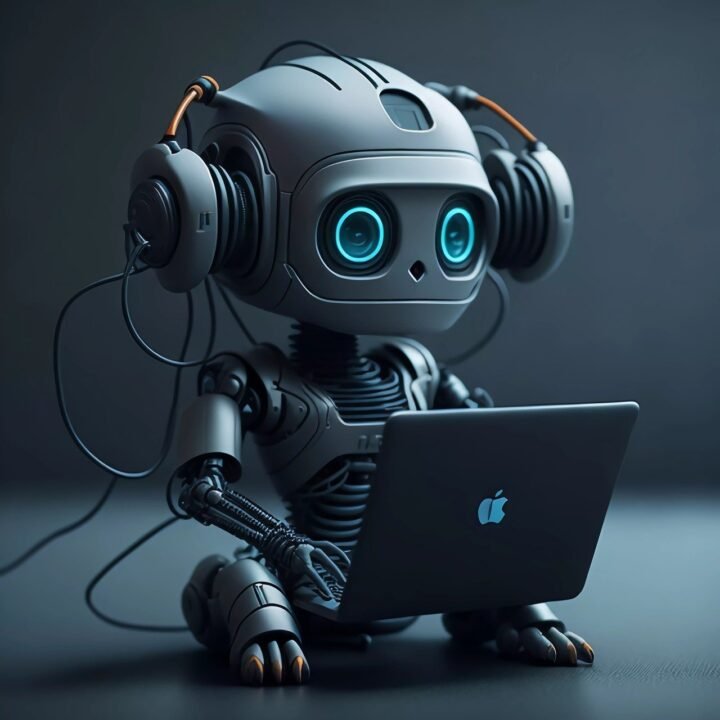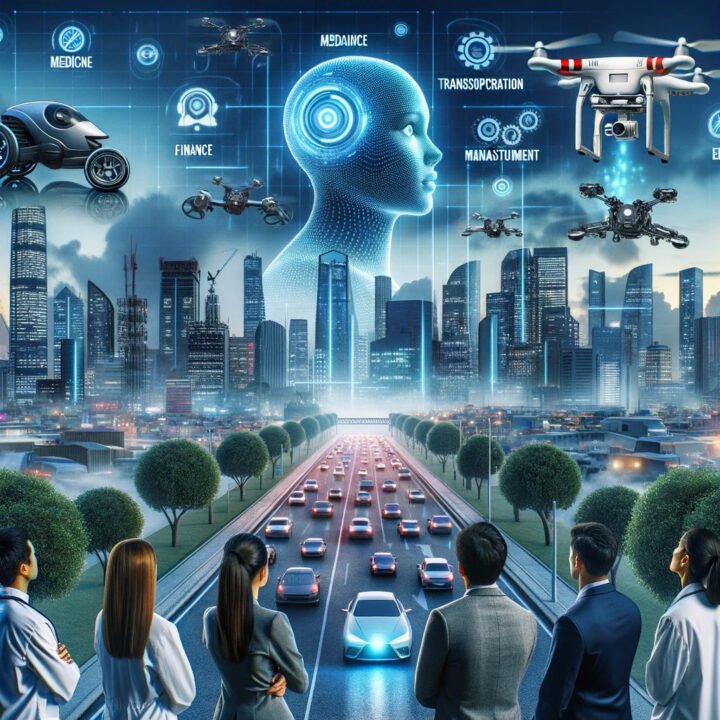Right now the world is witnessing an Artificial Intelligence revolution. Not in so distant future AI will shape every aspect of our environment, our day-to-day functioning, and our lives to an unimaginable extent. This will also open many new career avenues for people in the field of Artificial Intelligence. Applications of AI will be found in each and every field, whether it be electronics, education or transport. Those who adapt to the changing scenario in this rapidly changing tech-world will find plenty of professional avenues to self-actualize and make big in life.
StoryBrunch has compiled a list of the top 30 emerging careers in the world of AI. One can go through the list and choose a career path for himself depending on one’s skills, professional inclinations and growth prospects.
AI Ethicist: As AI systems become increasingly embedded in our daily lives, questions of ethics and fairness in their design and implementation become more important. AI Ethicists will be needed to address these issues, providing guidelines and recommendations for creating AI that respects privacy, avoids bias, and is used responsibly. They may also work on AI policy and regulation.
Machine Learning Engineer: Though already in existence, this role is likely to become even more prominent. Machine Learning Engineers focus on developing and applying algorithms to make AI systems learn from data. They work closely with data scientists to design and build models, then optimize these models to work efficiently in a production environment.
AI Interaction Designer: As AI gets more integrated into products and services, there will be a need for AI Interaction Designers. These professionals will specialize in crafting human-AI interactions, ensuring the AI systems are user-friendly, intuitive, and capable of understanding and responding to human emotions and nuances.
AI Data Curator: Data is essential for training and refining AI models. AI Data Curators will manage and prepare this data, ensuring its accuracy, relevance, and quality. They may also be responsible for anonymizing data to protect privacy, and dealing with the acquisition of new data for model training.
AI Trainer: AI systems often require human guidance to learn certain tasks, especially those that involve understanding human behavior or subtleties. AI Trainers will be responsible for “training” AI systems, providing them with the human input they need to perform their tasks effectively.
AI Healthcare Practitioner: AI is set to transform healthcare. AI Healthcare Practitioners will leverage AI in diagnosing diseases, developing personalized treatment plans, monitoring patient health, and even performing surgeries with robotic assistance. They will need to understand both medical practice and AI technologies.
AI Safety Engineer: This role will involve ensuring the safety of AI systems and managing any risks associated with them. This could involve testing AI systems for reliability, addressing potential vulnerabilities, and developing safeguards against misuse or malfunction.
AI Lawyer: As AI becomes more prevalent, legal issues surrounding its use will increase. AI Lawyers will specialize in this new field of law, dealing with questions about intellectual property rights, data privacy, AI ethics, liability in case of AI mistakes, and more.
AI-powered Systems Forensic Analyst: When AI systems go awry, or when they’re used in illegal activities, there will be a need for forensic analysts who specialize in these systems. These professionals will understand both AI and cyber forensics, and will be able to analyze AI systems to uncover what went wrong or how they were used.
AI Policy Maker/Regulator: As AI continues to evolve and permeate various aspects of society, there will be a growing need for individuals skilled in both technology and policy to help shape the rules and regulations governing the use of AI. This can include aspects related to privacy, bias, security, competition, and ethical use of AI.
AI Application Tester: As AI models are built for specific tasks, there will be a need for individuals who can test these applications in real-world scenarios and provide valuable feedback for refinement. These professionals need to be proficient in the technology as well as the business domain.
Quantum Machine Learning Scientist: Quantum computing is predicted to significantly enhance AI capabilities. Quantum Machine Learning Scientists will develop and implement quantum algorithms for machine learning tasks, accelerating data processing and AI model training.
AI Bias Auditor: AI systems can unintentionally perpetuate bias present in the training data. AI Bias Auditors will ensure the AI systems are unbiased and fair, checking the algorithms and their outcomes to detect and correct any inherent bias.
Conversational AI Designer: This role involves designing and implementing conversational AI models, such as chatbots or voice assistants, ensuring they provide an effective and pleasant user experience.
AI Hardware Specialist: As AI continues to evolve, so will the need for advanced hardware to support these systems. AI Hardware Specialists will develop and maintain the specialized hardware that powers AI, including GPUs, TPUs, and other AI-specific processors.
AI Robotics Technician: AI and robotics often go hand in hand. Technicians in this field will work with robots, equipping them with AI capabilities and ensuring they function as intended in various settings, from factories to homes.
AI Business Analyst: These professionals will analyze business needs and strategies, then determine how AI can best support and enhance them. They will act as a bridge between the technical team and the business side.
AI Agricultural Specialist: AI has significant potential in agriculture, for tasks ranging from crop monitoring to yield prediction. AI Agricultural Specialists will implement and maintain these AI technologies.
AI Data Privacy Officer: Given the vast amounts of data AI systems handle, privacy is a significant concern. These officers will ensure that AI systems comply with all relevant data privacy laws and best practices.
AI Neuroscientist: This role would involve studying how AI models could replicate human brain processes, or using AI to better understand our brains. This could lead to significant advancements in both AI and neuroscience.
AI in Education Specialist: AI can provide personalized learning experiences, among other benefits. Specialists in this field will implement and manage AI technologies in educational settings.
AI Social Worker: AI is likely to cause significant societal changes, including potential job displacement. AI Social Workers may help individuals navigate these changes, providing support and helping them acquire new skills.
AI Psychologist: As AI and humans interact more, there may be psychological impacts that need to be addressed. An AI Psychologist would study these effects and provide guidance for individuals and society.
AI Futurist: Futurists study trends, including AI, to predict future changes. AI Futurists specifically focus on how AI might shape the future, advising organizations or policy makers.
AI Sustainability Expert: This professional will work to minimize the environmental impact of developing and implementing AI technologies, in line with sustainability goals.
AI Space Explorer: AI will play a key role in space exploration. This role will involve using AI to analyze space data, control spacecraft, and potentially even in the search for extraterrestrial life.
AI in Entertainment Specialist: AI can create music, art, and even write scripts. These specialists will work in entertainment industries, using AI to create new content or experiences.
AI in Defense Specialist: AI is becoming a significant part of national defense strategies. These specialists will work to implement AI technologies in defense applications, from intelligence analysis to autonomous vehicles.
AI Transportation Specialist: AI has the potential to revolutionize transportation, from autonomous cars to optimized logistics. Specialists in this field will develop and manage these AI systems.
AI in Climate Science Specialist: AI can help model climate change scenarios and optimize renewable energy systems. These specialists will apply AI in the fight against climate change.
We hope the list will help you in choosing your career path in an AI world. If you have any further suggestion, please do not forget to add it in the comments section and we will update our list if we find it a good enough career avenue.









